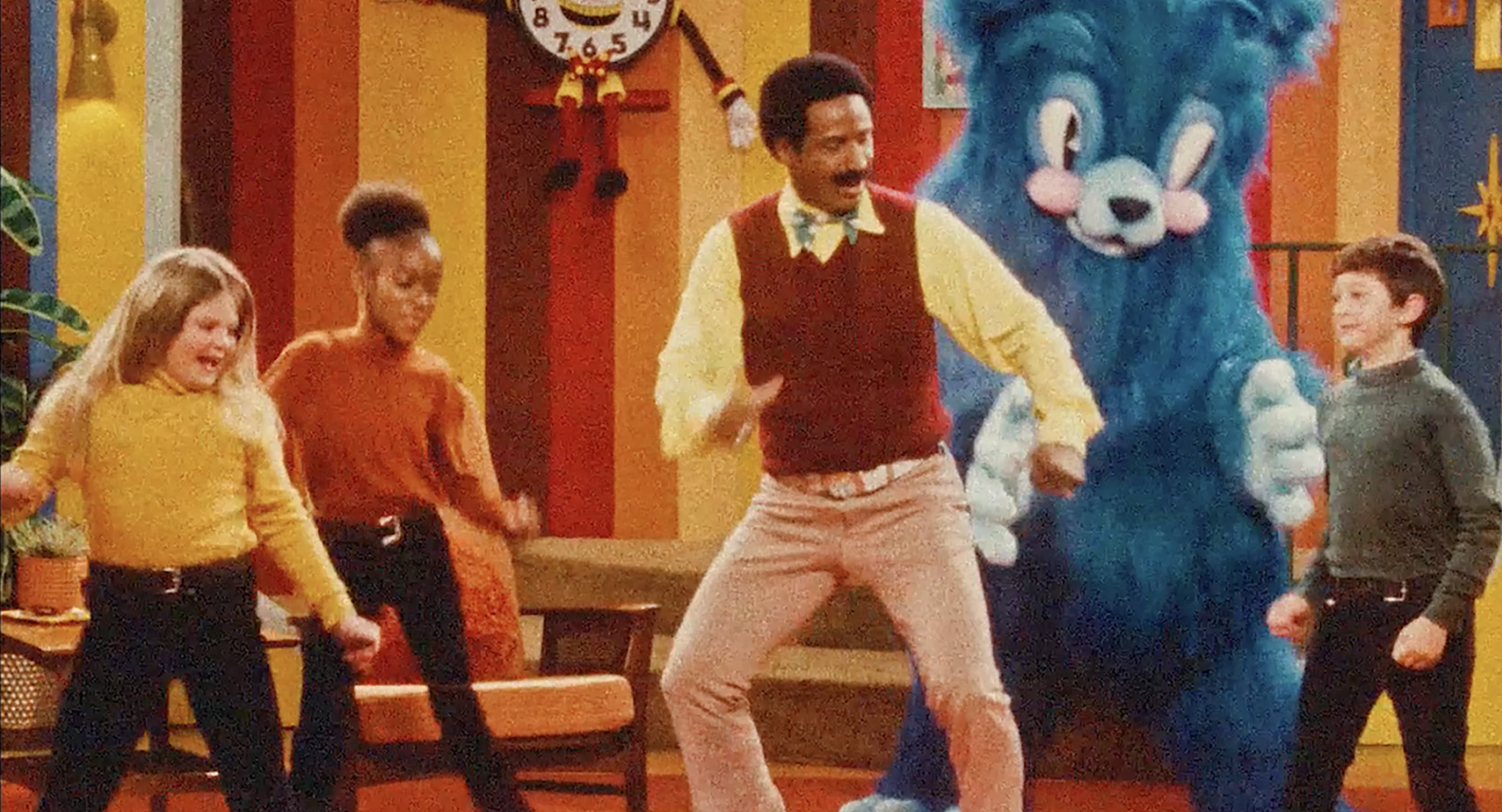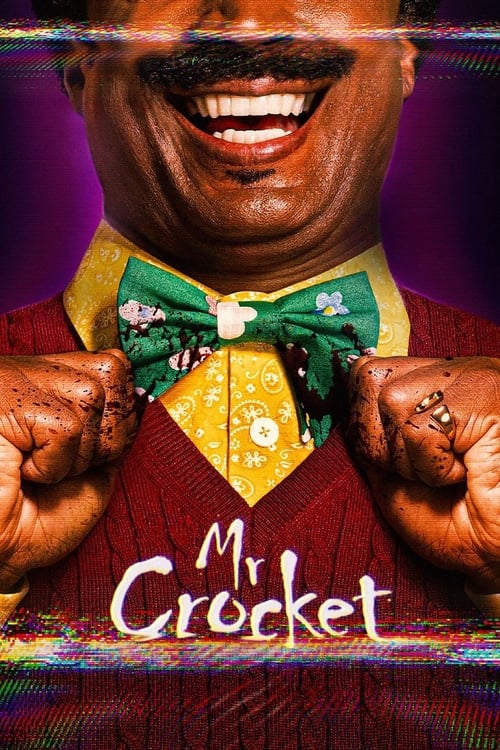Mr. Crocket – Film Review
Published October 12, 2024

In Mr. Crocket, written by Carl Reid and Brandon Espy and directed by Espy, audiences are plunged into a nightmarish world where childhood innocence is corrupted by a malevolent force. With an intriguing premise centered on a demonic children’s show host who kidnaps kids, the film attempts to explore the horrific underbelly of children’s entertainment while keeping a mother’s determination at its core. The result is a visually striking but narratively uneven horror film that offers moments of genuine dread but struggles with pacing and character development.
At the heart of Mr. Crocket is Rhonda (Kristolyn Lloyd), a mother whose life is shattered when her young son mysteriously vanishes. Rhonda quickly discovers that her son has fallen victim to a sinister force in the form of Mr. Crocket (Elvis Nolasco), the once-beloved host of a popular children’s show. As Rhonda delves deeper into the world of this eerie television personality, she uncovers a demonic influence behind his smiley, cheerful facade. With time running out, Rhonda embarks on a harrowing journey into the dark, supernatural realm that Crocket controls, desperate to save her son from a fate worse than death.
The premise immediately taps into primal fears of parents losing their children and adds a supernatural twist with the creepy, child-focused TV host. The blend of horror, nostalgia for children’s television, and demonic possession offers fertile ground for the film’s themes, though the execution doesn’t always live up to the rich concept.
Kristolyn Lloyd gives a strong and emotionally driven performance as Rhonda, a woman who transitions from devastated mother to determined warrior. Her portrayal of a mother’s desperation is palpable, and she carries much of the emotional weight of the film. Lloyd’s ability to balance fear, anger, and resilience lends credibility to Rhonda’s journey, even when the script falters. Her presence makes the audience root for her, and her performance is one of the film’s highlights.
Elvis Nolasco as Mr. Crocket is unsettling, blending charm with malevolence. His portrayal captures the duality of a character who outwardly appears to be a jovial and comforting figure but harbors a much darker, predatory nature. Nolasco leans into the theatricality of the character, making Mr. Crocket feel both absurd and terrifying. However, the film doesn’t always give him enough room to fully develop into the complex villain he could be. While Nolasco’s performance is unnerving, Mr. Crocket remains more of a symbolic menace than a fully fleshed-out antagonist.
One of Mr. Crocket‘s greatest strengths is its atmosphere. The film capitalizes on the inherent creepiness of children’s programming, using bright, garish colors and off-kilter set designs to evoke a sense of unease. The children’s show sequences are unnervingly cheerful, contrasting sharply with the darkness lurking beneath the surface. The visual style makes use of exaggerated cartoonish elements, which feel reminiscent of early 90s kids’ TV, but with an unsettling twist. This juxtaposition creates a surreal atmosphere that enhances the horror, even if the visual flair sometimes overshadows deeper storytelling.
The film’s use of shadows, dark spaces, and distorted camera angles adds to the claustrophobic terror Rhonda experiences. Espy skillfully plays with light and dark to evoke fear, especially in scenes where Mr. Crocket’s influence begins to distort reality. The transitions from the real world into Mr. Crocket’s supernatural domain are often jarring, reflecting Rhonda’s disorientation as she plunges deeper into danger. The production design excels at making Mr. Crocket’s world feel like a macabre version of a child’s fantasy land—a twisted mirror of the innocence it once promised.
Beneath the supernatural horror, Mr. Crocket explores themes of parental guilt and the loss of childhood innocence. Rhonda’s guilt over her inability to protect her son from harm drives her throughout the film, and her emotional turmoil is one of the more compelling narrative threads. The film subtly hints at Rhonda’s struggles with her own childhood trauma, drawing parallels between her past and her present battle with Mr. Crocket. These psychological layers add depth to Rhonda’s character, though the film doesn’t always fully commit to exploring them.
The idea of a demonic figure preying on children through something as innocuous as a TV show touches on cultural anxieties about media and its potential to corrupt. While the film hints at broader social commentary—such as the dangers of leaving children alone with television as a surrogate babysitter—it never fully develops these ideas into a cohesive critique. The horror of childhood corruption is present, but Mr. Crocket relies more on visual and narrative shock than on thematic depth.
While the film’s premise and atmosphere are compelling, its pacing is one of the weakest elements. The first act of the film builds tension effectively, setting up the mystery of Mr. Crocket and the stakes of Rhonda’s quest. However, the middle section drags as Rhonda embarks on her journey, with repetitive sequences that detract from the overall momentum. Some of the set pieces, while visually impressive, feel overly drawn out, and the film struggles to maintain its tension.
The narrative becomes muddled at times, especially as Rhonda encounters various supernatural obstacles in her quest to reach her son. These encounters, while occasionally terrifying, often feel disconnected from the central plot, as if they exist more to showcase visual effects than to advance the story. The final act delivers a climactic confrontation between Rhonda and Mr. Crocket, but the resolution feels rushed, with several plot threads left hanging or resolved in unsatisfying ways.
Mr. Crocket is a film that succeeds in crafting an eerie atmosphere and features strong performances from its leads, but its potential is hindered by uneven pacing and underdeveloped themes. The film’s premise—a mother battling a demonic children’s show host—is an intriguing concept that taps into parental fears and childhood nostalgia, but the execution doesn’t fully capitalize on its strengths. While it offers moments of genuine terror and emotional depth, the film’s disjointed narrative and reliance on visual spectacle prevent it from reaching its full potential.
For fans of atmospheric horror with a surreal edge, Mr. Crocket provides an enjoyable, if somewhat uneven, experience. However, those looking for a more tightly woven narrative and deeper exploration of its themes may find themselves left wanting.
